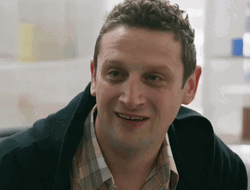So, my German course. It is quite a humbling experience to spend three hours a day not being able to speak a single word of your native language. Imagine doing it all of the time.
So far I’ve had the benefit of dipping my toe in like a too-hot hot tub and immersing myself in the language as needed or desired. For example, when I visit Kat’s family or when she’s tired and it’s easier for her not to translate in her head. Even this isn’t like a full cold plunge (I’m mixing up my similes) but it’s close.
When I say it is humbling the reasons are threefold: one, as an American, I am forced to confront one of our education system’s most glaring flaws — the fact that almost no one meaningfully learns a second language. It is tiring constantly translating things in your head, and frustrating knowing you can’t quite yet express yourself the way you want.
The second reason it is humbling is that the people in my class come from all over the world. Some have fled war, oppression, or simply a place where they could not make a life for themselves. We are all there, together, working toward fluency and it gives me a perspective I never had before.
What’s more, I never speak English in class. These are the first people who will know me solely in German. Kat and my friends here in Berlin are experiencing a gradual phase-out/in and her family has so far experienced my embarrassed, mute silences and my bumbling attempts to speak German. This class is where, no matter how good or bad it is, I am on my own — without the crutch of translation from Kat or the knowledge that I can switch to English when the going gets tough.
Ultimately, it brings me back around to something I’ve considered a lot recently — how my personality will change speaking in another language. So far I have been more reserved (understandably) and I am still finding my footing. I recently lamented to Kat that someone else in the class is better at cracking jokes than I am. I haven’t yet found my comedic timing in German in part because I like to proofread what I want to say in my head before I speak — a crucial delay that leaves me laughing at other people’s successful jokes in the corner like this:
The third and certainly not final reason it is humbling is that, much like my return to school, learning a new language thrusts you back into that uncertain territory of childhood when you’re trying everything out for the first time. As Kat has noted, when I get something right it’s like a baby learning their first words (adorable). Other times I say things that turn out to be wildly inappropriate for the situation like a child who, out of curiosity, says something like “fuck” or “shit” not knowing it is a bad word.
In our latest class, we discussed the benefits of bilingualism and the importance of starting kids early. However, as I sat there lamenting the fact that I had not been a child polyglot, I wanted to say that, while conventional wisdom holds that after 12 a person’s ability to learn a new language vastly decreases, it is more than possible to learn a language as an adult. It is frustrating and embarrassing and there will be no shortage of times where your ego takes a hit, but sometimes we need to suck at something for a while before it gets better — and for me things are really starting to get better.





